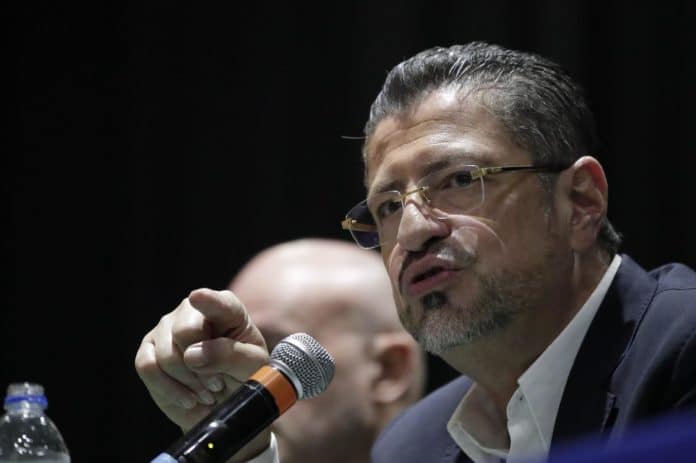
Featured image: President-elect of Costa Rica, Rodrigo Chaves. Photo: EFE.

Orinoco Tribune – News and opinion pieces about Venezuela and beyond
From Venezuela and made by Venezuelan Chavistas

Featured image: President-elect of Costa Rica, Rodrigo Chaves. Photo: EFE.
The new government of Costa Rica, with President-elect Rodrigo Chaves at the helm, is considering diplomatic rapproachement with Venezuela, although the outgoing administration of President Carlos Alvarado had recognized Juan Guaidó following the failed US led “regime change” operation against the legitimate government of Nicolás Maduro.
On Friday, April 22, the designated Foreign Affairs Minister of the new government, Arnoldo André Tinoco, confirmed the intention to resume relations with Nicaragua, a country with which the Alvarado government had grown distant and did not appoint ambassadors in recent years, also following the failed US strategy of regime change in Nicaragua.
RELATED CONTENT: Supreme Court of Venezuela Rules in Favor of Peasants of Los Tramojos
In this context, Tinoco also announced that recognizing Maduro “is one of the possibilities” that is being evaluated. “Venezuela is under study, circumstances have been changing,” said Tinoco.
“The global dynamic moves towards adjusting to the realities of politics,” Tinoco commented. “In international law a government is the one that exercises power,” he added, in reference to the entity making decisions.
Costa Rica was an active member of the Lima Group created by Washington, using Canada as its ventriloquist, to regionally pressure and isolate the legitimate government of Venezuela headed by President Maduro.
RELATED CONTENT: Survey: Does Anyone Still Trust the Venezuelan Opposition?
The Chaves government will assume charge on May 8 for a period of four years. In the second round of the recent presidential elections in Costa Rica, Chaves got 999,382 votes (52.86%), while his opponent José María Figueres obtained 891,403 votes (47.14%). The turnout for the second round was 57.33%.
Many analysts in Venezuela have been evaluating latest statements coming from the governments of some Latin American countries, such as Argentina, about resuming diplomatic relations with Venezuela. Such statements are not necessarily a sign of recognition of the mistakes and violations of international law by those governments in trying to isolate Venezuela under Washington’s dictates, but rather appear to be a pragmatic decision at a time when oil prices are rising, threatening to disrupt many oil-importing economies in the region and around the world.
Featured image: President-elect of Costa Rica, Rodrigo Chaves. Photo: EFE.
(Últimas Noticias), with Orinoco Tribune content
Translation: Orinoco Tribune
OT/JRE/SC